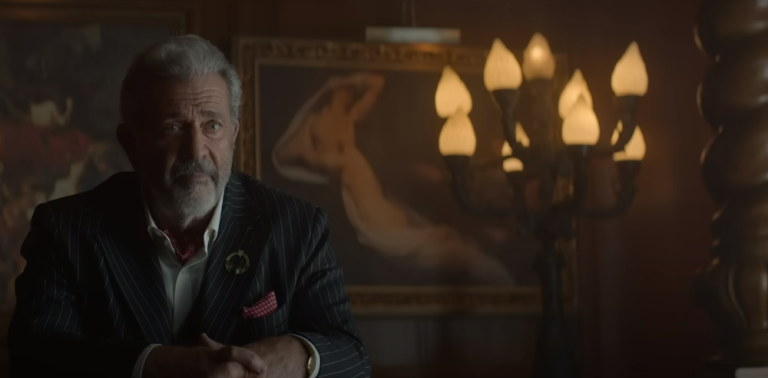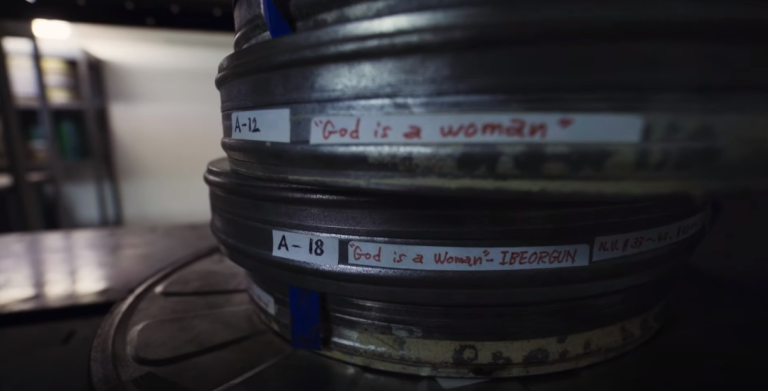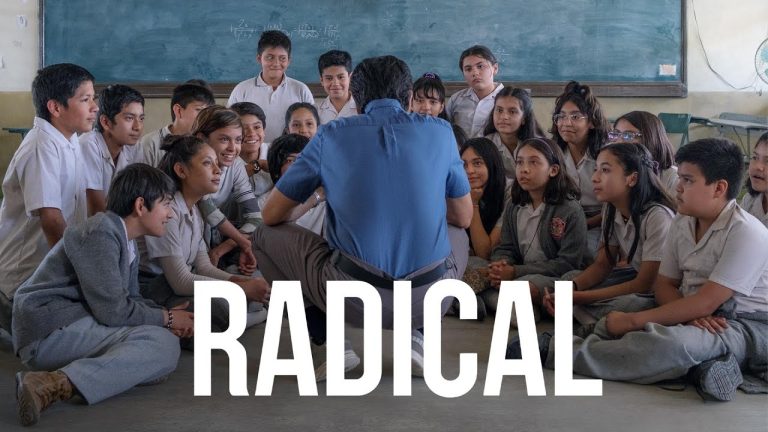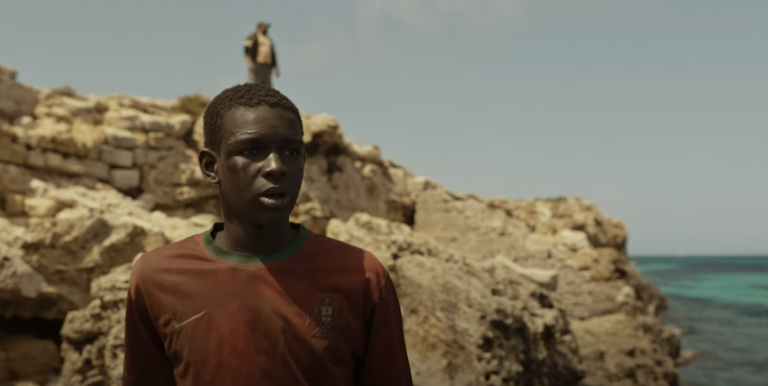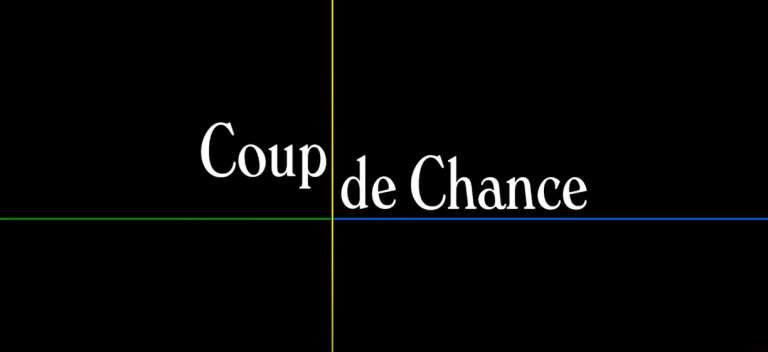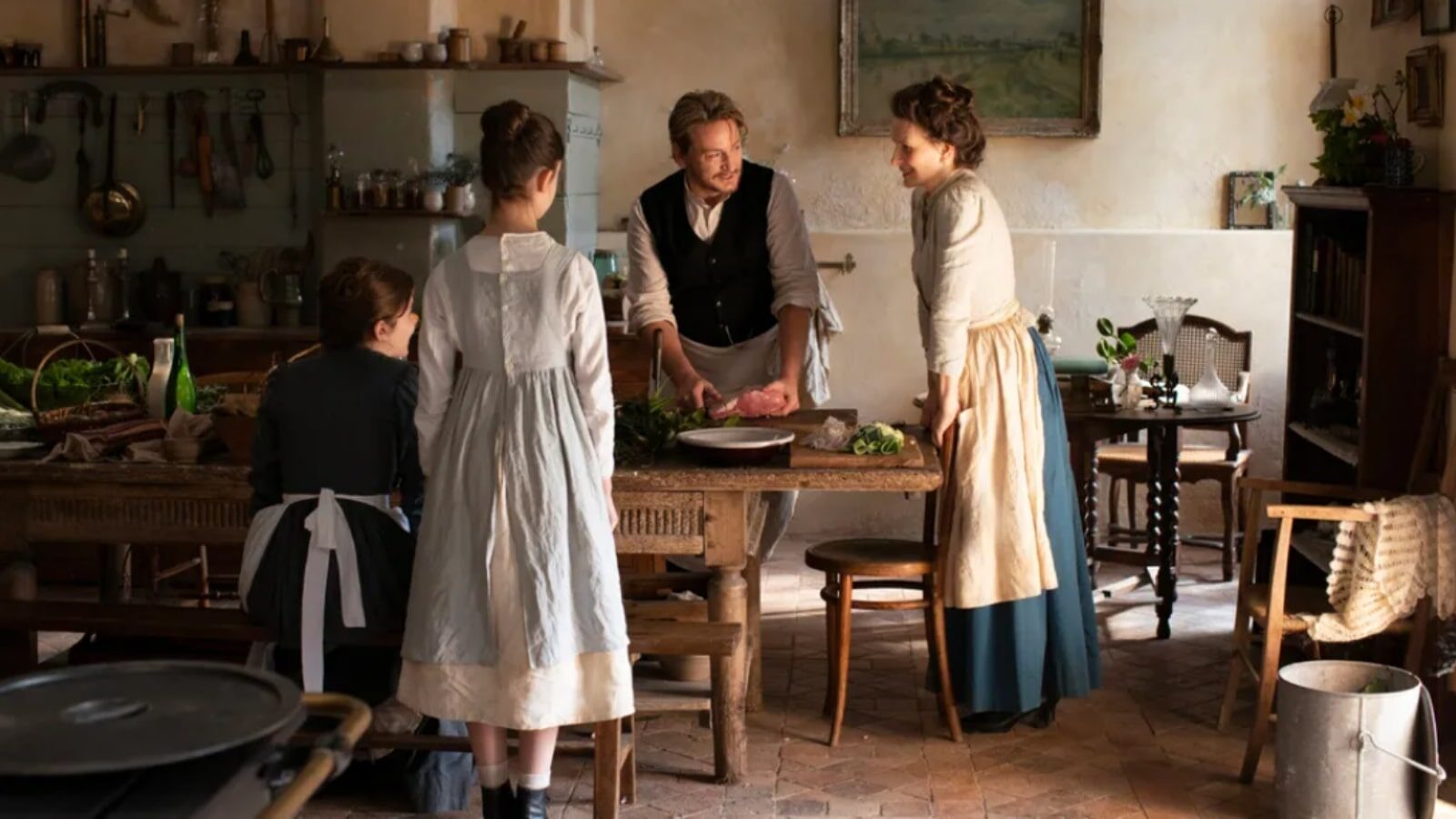
The first part of Tran Anh Hung’s “The Taste of Things” lasts nearly 40 minutes – a bit longer than an average moviegoer can withstand. It shows two people and their helpers cooking in a big kitchen. They prepare a fancy meal with many courses at the same time. The camera smoothly moves around the kitchen, following the characters as they cook and chop ingredients. During these minutes, viewers get absorbed in the cooking process, feeling excited about the delicious meal being made. This scene is impressive because it makes viewers feel satisfied when the guests finally enjoy the carefully prepared dishes without needing words to explain it.
In this long scene where people don’t talk much, we learn about their relationships by watching what they do. Dodin Bouffant leads the kitchen and interacts with guests while cooking. His partner, Eugénie, enjoys her work, showing her happiness through her expressions. The teenage helpers, Violette and Pauline, work quietly and skillfully, with Pauline proving to be exceptionally talented in cooking. This part of the story, based on Marcel Rouff’s novel “The Passionate Epicure,” moves forward through these scenes, where the focus is on the enjoyable cooking moments, setting the film’s pace.
“The Taste of Things” stands out among other food movies because of the incredibly tempting meals made by Dodin and Eugénie. The food scenes are so vivid that you can almost smell the delicious broths, pastries, and chickens. But beyond the mouthwatering dishes, the film explores the close bond between Dodin and Eugénie. They’ve been working together for twenty years, respecting each other and sharing a passion for cooking as an art form.
Tran Anh Hung tells the story naturally, without forcing drama. The characters’ love for food symbolizes their feelings and connections. Dodin and Eugénie’s relationship is shown with depth and subtlety, highlighting their respect and shared love for cooking. The film’s slow pace lets viewers enjoy the food preparation, thanks to Jonathan Ricquebourg’s cinematography and Toma Baqueni’s production design.
The movie portrays a mature love story without drama, focusing on Dodin’s affection for Eugénie. Their relationship is explored through honest conversations and leisurely moments. The film delicately shows their reluctance to formalize their relationship, adding depth to their love story.
In “The Taste of Things,” the focus is on actions rather than words. Characters are defined by their passions and what they do. Dodin and Eugénie’s bond is shown through their shared love for cooking, a silent yet strong connection. The film beautifully captures this dynamic, revealing a deep and touching relationship that speaks volumes without needing words.
“The Taste of Things” beautifully shows how food, security, and love are intertwined, echoing M.F.K. Fisher’s idea. Cooking for someone and loving them become intertwined, highlighting the unity of these human needs. The film emphasizes that it’s all connected.
| Aspect | Summary |
|---|---|
| Title | “The Taste of Things”: Tran Anh Hung’s Culinary Masterpiece |
| Description | An in-depth exploration of the extended cooking sequence in “The Taste of Things,” highlighting its immersive portrayal of culinary artistry and subtle character development. |
| Characters | Dodin Bouffant, Eugénie, Violette, and Pauline: Key characters whose relationships and personalities are revealed through their actions in the kitchen. |
| Cinematic Experience | Tran Anh Hung’s film offers a unique blend of gastronomic visuals and emotional depth, where cooking serves as a metaphor for love and relationships. |
| Narrative | Adapted from Marcel Rouff’s novel, the film unfolds organically, allowing viewers to savor the details of food preparation while delving into the characters’ emotions and connections. |
| Love Story | Dodin and Eugénie’s mature and tender relationship is depicted through their shared passion for cooking, emphasizing the interconnectedness of food, security, and love. |
| Philosophical Theme | The film explores the intertwined nature of basic human needs, portraying cooking as an expression of love and a fundamental aspect of relationships. |

